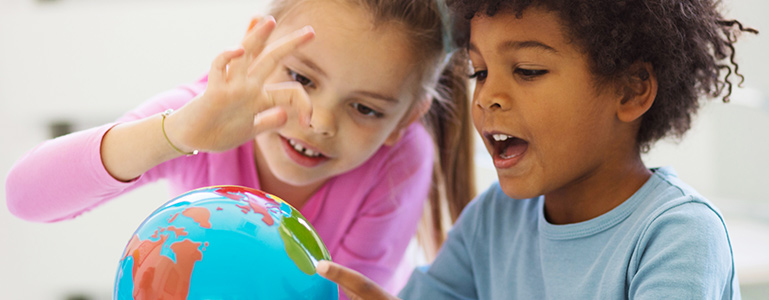In this special series about Parenting and Race, we highlight the experience of what it’s like to raise kids of color in our society. The intention is to spark courageous conversations, encourage reflection, and provide guidance and support for talking to kids about race and racism at every age, so we can create more inclusive, tolerant, and socially just communities.
My 16-year old daughter was recently tasked with a history assignment about the women’s rights movement of the 1970’s. During our discussion, we talked about the violence women endured during the suffrage movement of the early 20th century, culminating in the ratification of the 19th amendment in 1920, granting women the right to vote. Well … granting white women the right to vote. African-American women were denied full access to voting until the passage of the Voting Rights Act of 1965, a fact that shocked my daughter. Reflecting on her response, I realized I haven’t done enough explicit teaching about race and racism, a direct result of my white privilege.
Talking with children about race is something every African-American parent does from an early age on. “The Talk” is a rite of passage for many African-American children, especially boys and young men. It has nothing to do with the birds and the bees. The Talk is about how to behave in the presence of police to mitigate potential harm: no sudden movements, don’t question why you’re being stopped, comply with all verbal commands, never raise your voice. If you haven’t had this talk with your child, you have the benefit of white privilege.
White parents may experience distress and discomfort when having conversations about race and racism. Robin DiAngelo’s powerful book, White Fragility: Why It’s so Hard for White People to Talk about Racism, is an excellent place to begin building our racial stamina. Racism is not simply a discrete act by an individual person, DiAngelo states, it is a complex, interconnected system and a social dynamic that we all share responsibility for holding in place. To dismantle and disrupt racism, everyone has to participate in this critical, lifelong work.
Parents have the ability and responsibility to start this work when children are young. There are many resources out there to support your efforts. Begin making a positive difference in your community by doing this important work at home with your kids. And if you need help, reach out to our parenting experts, who can guide and support you along the way.
Books for Kids:
Skin Like Mine by LaTashia M. Perry
Shades of People by Shelley Rotner and Sheila M. Kelly
I am Enough by Grace Byers
Let’s Talk About Race by Julius Lester and Karen Barbour
(For parents and kids together) A Kids Book About Racism by Jelani Memory
Books for Kids by African-American authors:
Honey, Baby, Sugar Child by Alice Faye Duncan
Please, Baby, Please by Spike Lee and Tonya Lewis Lee
Chocolate Me! by Taye Diggs
Peekaboo Morning by Rachel Isadora
I Need You to Know: The ABCs of Black Girl Magic by Lora McClain Muhammad
Still I Fly by Nikki Ace
Books for Parents:
Why are all the Black Kids Sitting Together in the Cafeteria? By Beverly Daniel Tatum, PhD
White Fragility: Why It’s So Hard for White People to Talk About Racism by Robin DiAngelo
Raising White Kids: Bringing up Children in a Racially Unjust America by Jennifer Harvey
Websites:
EmbraceRace: 10 tips for teaching and talking to kids about race
National Museum of African American History and Culture: Talking About Race
USA Today (Alia E. Dastagir), George Floyd. Ahmaud Arbery. Breonna Taylor. “What do we tell our children?”
American Psychological Association: Resilience-Uplifting Youth Through Healthy Communication About Race



